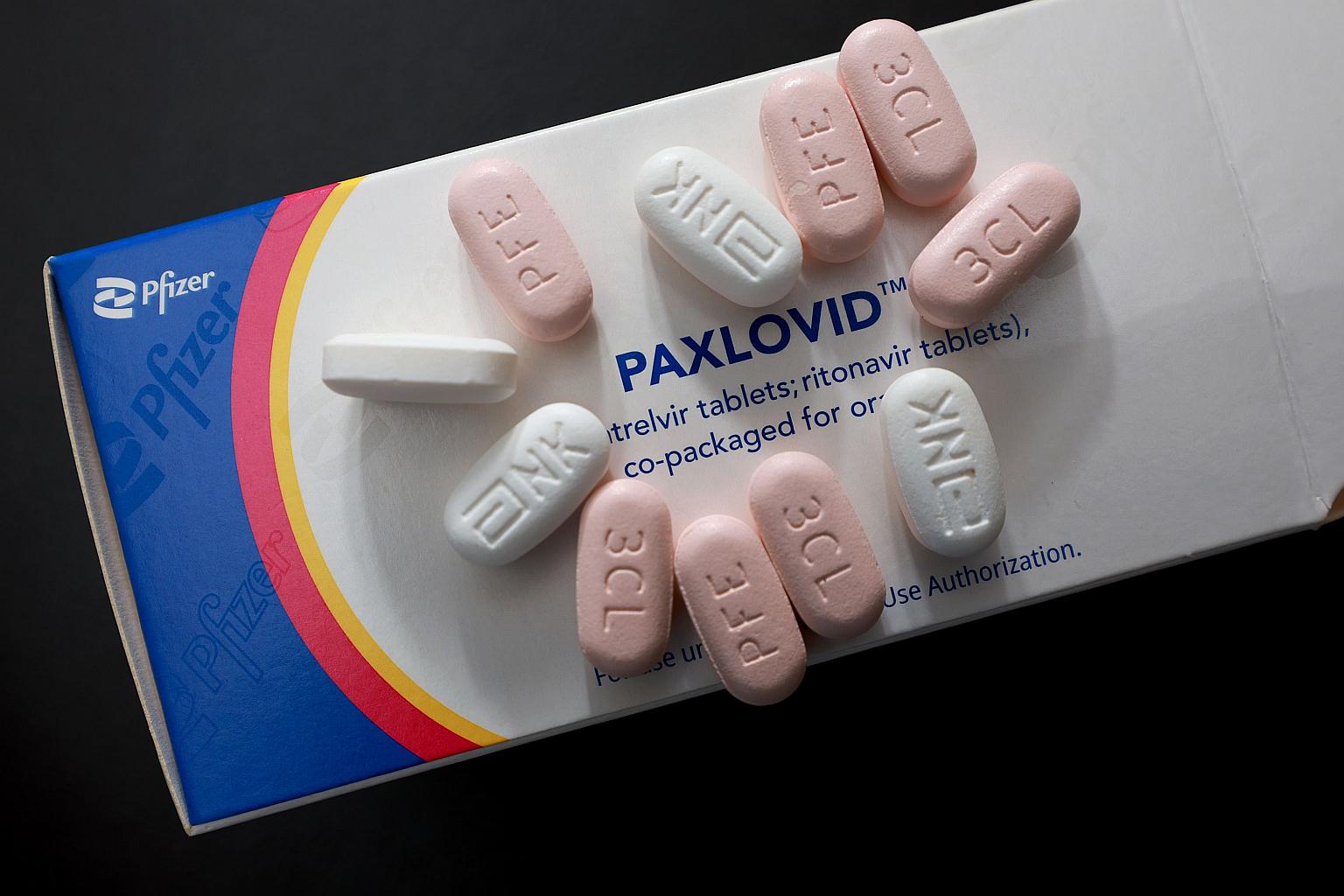More than 3,200 Covid-19 patients have been prescribed oral antiviral drugs
Sign up now: Get ST's newsletters delivered to your inbox

The patients have been prescribed either Paxlovid (pictured) or Lagevrio.
PHOTO: AFP
Follow topic:
SINGAPORE - More than 3,200 patients across all healthcare settings have been prescribed either Paxlovid or Lagevrio, which are oral antiviral drugs that are being used to prevent people from falling very ill with Covid-19, as at July 10, said the Ministry of Health (MOH) on Thursday (July 21).
All polyclinics and 133 Public Health Preparedness Clinics (PHPCs) can now prescribe the two antivirals for Covid-19 patients who are at risk of severe disease and who are assessed by their doctor to be clinically eligible to receive the treatment, said a spokesman for MOH.
Singapore's Health Sciences Authority authorised the emergency use of Pfizer's Paxlovid on Jan 31 and MSD's Lagevrio, otherwise known as molnupiravir, on April 19.
On July 5, Health Minister Ong Ye Kung said that all polyclinics and more than 103 PHPCs can offer the oral tablets.
The use of the drugs will help ensure that most people who contract Covid-19 can continue to be treated outside of hospitals, even as cases rise, he added.
So far, the vast majority of Covid-19 cases in Singapore, especially those who have been vaccinated and have received their booster shots, have had mild symptoms and did not require oral antiviral drugs, said the MOH spokesman.
These drugs must be given early, within five days of illness, and are available only via prescription.
They can be considered for those who are assessed by their doctor to meet certain criteria. These include Covid-19-positive patients aged 18 and older, and are at risk of developing severe disease (such as those who are 60 years and older, regardless of their vaccination status; or have active cancer or serious heart, lung or kidney conditions) or are on ongoing immunosuppressive treatment.
The decision to take Paxlovid or Lagevrio should be made after discussion with the doctor on the benefits and risks, the spokesman said. Paxlovid, for instance, is known to interact with a long list of drugs.
MOH said it will continue to fully cover the cost of the use of the drugs in primary care settings for now, regardless of a patient's vaccination status, as the drugs can reduce the likelihood of high-risk patients developing severe Covid-19 and requiring hospital admission.
The spokesman added that the charging policy for Paxlovid and Lagevrio will be reviewed in due course.
Meanwhile, elsewhere, some people, including United States President Joe Biden's top medical adviser, Dr Anthony Fauci, have reported falling sick again shortly after their initial recovery, in what is sometimes called the Paxlovid rebound.
Still, Dr Fauci said in late June that the drug did what it was supposed to do by keeping him out of hospital.
When asked about this, the MOH spokesman said: "Viral rebound is an uncommon phenomenon which has thus far been reported in international studies in a small percentage of patients after treatment with Paxlovid."
Generally, such patients show mild symptoms which were resolved without any further treatment, he said.
Correction note: Health Sciences Authority authorised the emergency use of Pfizer's Paxlovid on Jan 31 and not Jan 21. We are sorry for the error.

